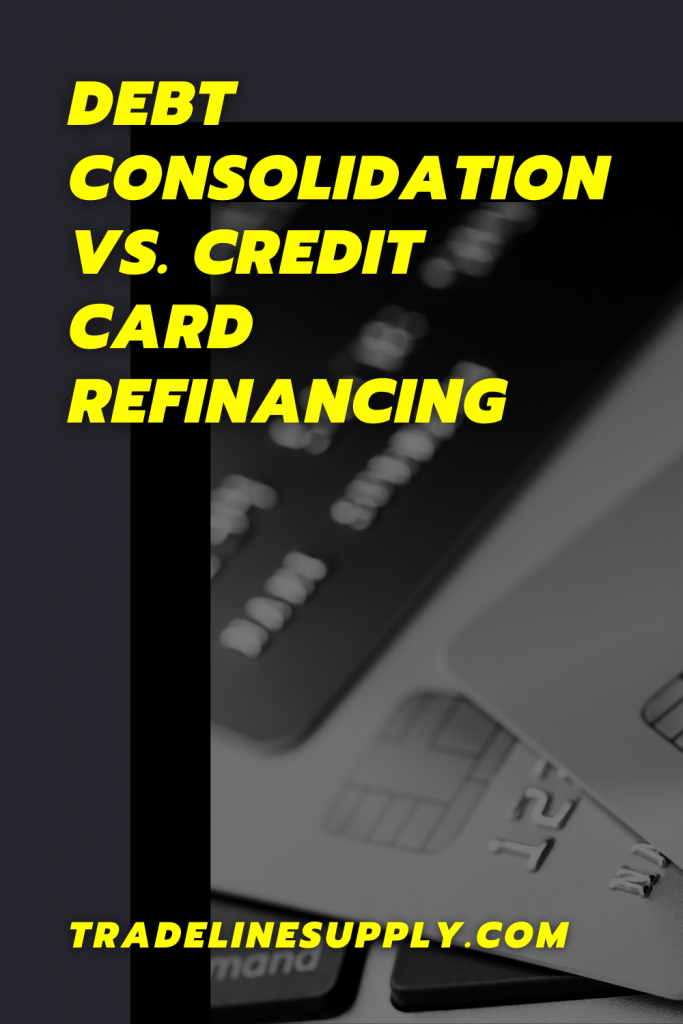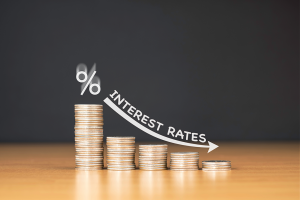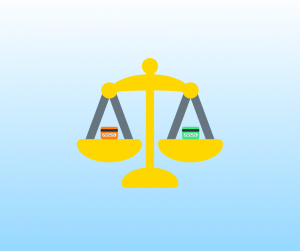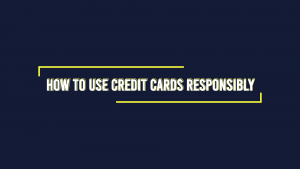Debt Consolidation vs. Credit Card Refinancing: Which Is Right for You?

Essential Guide to Renters’ Rights—What You Need to Know
09/06/2024
Line of Credit—Essential Guide to Expectations & Realities
09/27/2024 When you have debt holding you back, it can be a drain on your personal finances. That’s especially true when you have high-interest credit card debt.
When you have debt holding you back, it can be a drain on your personal finances. That’s especially true when you have high-interest credit card debt.
The good news is that the right loan strategy offers a path to freedom from your high-interest credit card debt. Not only that, but paying down your credit card balances can lead to a higher credit score. That’s because your credit score takes your credit utilization ratio into account. You can potentially tap into a higher credit score with a lower credit utilization ratio.
So, are you ready to tackle your high-interest debt? The first step is to choose between debt consolidation and credit card refinancing. Let’s take a closer look at both options so that you can decide which one is right for you.
What Is Debt Consolidation?
Debt consolidation is the process of taking out one large loan to pay off your high-interest credit card balances. You’ll have one loan payment instead of multiple credit card bills at the end of successful debt consolidation.
This is accomplished by taking out an installment loan. The lump sum you receive from the loan upfront can be used to pay off your credit card debt. At that point, you’ll have a single payment due in regular intervals over the course of the installment loan’s term.
One installment loan option is an unsecured personal loan. An unsecured personal loan often comes with higher interest rates than a secured personal loan. But the interest rates on personal loans are typically more affordable than the notoriously high interest rates attached to credit cards.
Unsecured personal loans don’t require collateral assets such as a home, vehicle, or savings account. But it is possible to obtain a lower interest rate through a secured installment loan.
One popular secured installment loan option is a home equity loan. Essentially, a home equity loan allows you to pull some of the equity out of your house to pay down your credit cards.
Although the interest rate you can unlock with an installment loan varies based on your credit score, it’s possible to significantly lower your interest costs. Plus, the fixed term of an installment loan offers an end date. Instead of just keeping up with the interest rates attached to your debt, you can work towards the removal of this debt burden from your life.
What Is Credit Card Refinancing?

Credit card refinancing is another way to make repaying your credit card debt more manageable. Essentially, credit card refinancing involves finding a balance transfer option to another credit card with a lower interest rate. This helps you save on interest charges.
It’s not uncommon to find balance transfer opportunities in which the new credit card has a 0% interest rate for a limited time. During that 0% interest rate period, you can work towards paying down the balance without a high interest rate combating your efforts.
Why would a credit card company offer such a great deal? Unfortunately, there is a catch.
When you make a balance transfer, there is typically a transfer fee that ranges from 3% to 5%. Plus, some of these credit cards come with an annual fee. With that, the credit card company has an incentive to offer balance transfers. But in the long run, they are likely hoping that you can’t pay off your balance before the 0% introductory APR expires. Once the promotional period ends, the remaining balance will again have a high interest rate attached.
But credit card refinancing through a balance transfer is still a viable option for those looking to accelerate their debt repayment journey. The possibility of a 0% APR for an extended period of time presents a great opportunity to avoid high interest rates and make progress on paying down your credit card debt.
Debt Consolidation vs. Credit Card Refinancing: What Is the Difference?
So, now you know a bit about debt consolidation and credit card refinancing.
But understanding the nuanced differences between these two credit card debt management options is critical. With that, let’s take a closer look at the differences between debt consolidation vs. credit card refinancing.
Payments
The first major difference between debt consolidation and credit card refinancing is the payment terms.
When you take out an installment loan to implement a debt consolidation plan, it comes with a fixed monthly payment. As the borrower, you’ll be able to create a budget with this fixed monthly payment in mind. After all, you know that the installments are due on a regular schedule until the end of a specified term.
The fixed payments also come with a predetermined end date. It can be nice to know when you’ll eliminate this debt forever.
In contrast, credit card refinancing comes with flexible payments. Like other credit card financing options, you’ll have a minimum monthly payment to make. But beyond making the minimum payment, you have more flexibility in your repayment schedule.
Payment flexibility is a double-edged sword. On one hand, you have the option to make smaller payments. But on the other, those smaller payments will slow your debt repayment journey.

Credit Score Requirements
When taking out a loan of any kind, credit score requirements must be taken into account.
In general, bad credit borrowers will struggle to access the best financing terms. Whether you are seeking a personal loan or a balance transfer, you might run into roadblocks if you have a bad credit history.
For those seeking a balance transfer, issuers will typically require a good or excellent credit score. But some lenders are willing to offer personal loans to borrowers with relatively low scores.
Take some time to shop around to find out what’s available based on your credit score.
Collateral
If you have a relatively low credit score, that’s not the end of the road. Instead, high-risk borrowers should consider using an asset as collateral for a debt consolidation loan.
When you are able to offer collateral to a lender, it’s possible to access better interest rates and terms. That’s because the lender has the right to take your asset away if you aren’t able to keep up with your payments, which removes a level of risk for the lender.
As a borrower considering a secured installment loan, weigh the risks carefully before moving forward. For example, let’s say that you use your home as collateral for an installment loan. If you aren’t able to keep up with the payments, you could lose your home. With that, it’s critical to make sure you can afford the payment before considering a debt consolidation loan that involves collateral.
A balance transfer won’t require collateral. But you could be stuck with higher interest rates down the road.
Costs
When considering a debt consolidation loan or credit card refinancing option, it’s important to know that either option will come at a cost. But the breakdown of those costs varies.
When pursuing credit card refinancing through a balance transfer, there are a few fees to expect. These credit card fees include:
- Balance transfer fee: Credit card companies will often charge between 3% to 5% of the balance transferred. The fee is added to the balance on your new credit card.
- Annual fee: Some balance transfer credit cards may charge an annual fee. Make sure to factor this cost into your debt repayment budget.
- Interest rate hike: A balance transfer credit card often only comes with a 0% APR for a limited amount of time. Be prepared for the interest rate to rise considerably after the introductory period expires.
When pursuing an installment loan for debt consolidation purposes, there are other fees to consider. These include:
- Origination fee: The most significant fee to worry about is the origination fee. Depending on your lender, you could find an origination fee between 1% to 8%. But not all lenders impose this costly fee.
- Prepayment penalties: If you are consolidating debt, chances are that you want to eliminate your debt for good as quickly as possible. A prepayment penalty is an added cost to consider.
When considering debt consolidation and credit card refinancing, make sure to weigh out the costs of any particular loan before jumping in. It is critical to run the numbers and confirm that your choice will save you money overall.
Advantages and Disadvantages of Debt Consolidation
Every financial product has its pros and cons. Here’s what you need to know about debt consolidation.
Let’s start with the advantages of debt consolidation:
Lower Interest Rate Options
A debt consolidation loan often offers lower interest rates than credit cards.
Data from the Federal Reserve proves this point to be true. In the second quarter of 2022, the average interest rate on a 24-month personal loan was 9.41%. But the average interest rate assessed on credit cards was 16.17% in the same period.
Fixed Interest Rate
When you finalize a debt consolidation loan, there will be a fixed interest rate attached. With that, you won’t have to worry about an interest rate spike. Instead, you can focus on making regular monthly payments until the loan is paid off.
Simplify Finances
Instead of keeping up with multiple credit card payments, you can simplify your financial life to just one outstanding debt payment. With that, there are fewer opportunities to miss payments along the way.
Now for the disadvantages of debt consolidation:
Collateral Risk
Although this secured installment loan usually comes with lower interest rates than an unsecured personal loan, there is a risk involved when using your home as collateral. If you aren’t able to keep up with the payments, then the lender could foreclose on your pledged asset. Make sure that you can confidently keep up with the payments before choosing a home equity loan as your debt consolidation option.
Upfront Costs
When taking out a debt consolidation loan, you’ll likely run into some upfront costs. Depending on your situation, the upfront costs could throw a wrench in your debt repayment plans.
Advantages and Disadvantages of Credit Card Refinancing
As with debt consolidation loans, credit card refinancing comes with some pros and cons. It’s important to weigh out the advantages and disadvantages carefully.
Here’s more information about the advantages of credit card refinancing.
Save on Interest Payments
If you find a credit card with a 0% APR, that equates to savings. That’s true even if there is an expiration date on your incredibly low interest rate.
Typically, introductory rates last for 12 to 18 months. You can use that low-interest period to make a significant dent in your debt repayment. Depending on your situation, you may even be able to eliminate the debt before the higher interest rate kicks in.
Flexible Repayment
Unlike a debt consolidation loan, credit card refinancing comes with a more open-ended repayment requirement. You will have a minimum payment to make every month. But beyond that, you can pay as much or as little as you like.
If your finances are tight, then a flexible repayment option could give your budget the breathing room it needs.

Now, let’s consider the disadvantages of credit card refinancing.
Looming Interest Rate Spike
The introductory interest rate period won’t last forever if you obtain a balance transfer.
At some point, the credit card issuer will raise the interest rate. And since credit cards are notorious for having a high interest rate attached, you should expect the interest rate to be relatively high after the introductory period is over.
Costs
Typically, you’ll face an upfront balance transfer fee. With the average range of this fee around 3% to 5%, that’s a significant cost to consider.
Which Option Is Best for You?
When considering debt consolidation through an installment loan or credit card refinancing through a balance transfer, the right option might not be immediately obvious.
Here are a few things to help you decide which debt management strategy is right for your situation.
- Good credit score: If you have a good credit score, then unlocking a lower interest rate through debt consolidation or credit card refinancing is an achievable goal. If you have a bad credit score, then a secured debt consolidation loan is more realistic than a credit card refinancing solution.
- Consider a realistic repayment timeline: Are you able to pay off the debt in the next 12 months? If so, a 0% balance transfer is a good option. Will it take longer to pay off this debt? Consider a personal loan with the appropriate debt repayment timeline for your situation.
- Consider budget flexibility: Can you budget comfortably support a regular monthly payment? If so, an installment loan could be the right move. But if you would prefer the payment flexibility that comes with a credit card, then a balance transfer would better suit your preference.
No matter which option you choose, it is important to take the time to shop around. By weighing out the fees and interest rates involved, you can land on the best option for your finance.
If you are struggling to obtain either option due to a poor credit score, then consider working on your credit score before moving forward with debt consolidation or credit card refinancing.
You can make strides to improve your score through on-time payments. Also, consider removing inaccurate negative information through credit repair.
The Bottom Line
Debt consolidation and credit card refinancing both have the same goal of managing your debt efficiently. If you have high-interest credit card debt, taking action to eliminate this debt is a smart move.
Which option will you pick? Let us know in the comments below!




